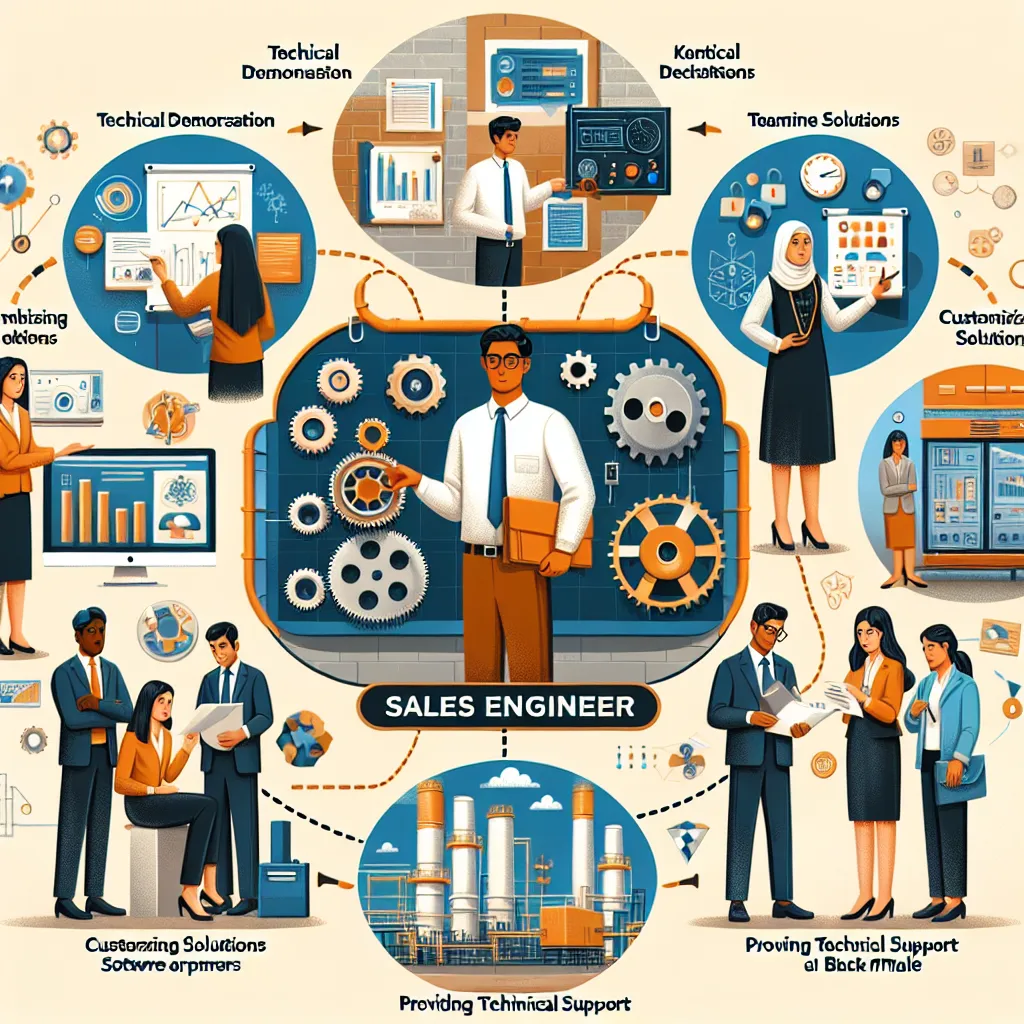As a job seeker, you’re likely to encounter questions about training and development during your interview process. These questions are crucial as they help employers gauge your commitment to personal growth and your potential value to the organization. In this article, we’ll explore effective strategies to answer such questions, ensuring you present yourself as a candidate who is eager to learn and contribute to the company’s success.
Understanding the Importance of Training and Development Questions
Training and development questions are essential in job interviews because they reveal several key aspects about a candidate:
- Willingness to learn and adapt
- Self-awareness of skills and areas for improvement
- Alignment with the company’s growth mindset
- Potential for long-term commitment to the organization
Employers want to hire individuals who are not only qualified for the current role but also have the potential to grow with the company. By asking about your approach to training and development, they’re assessing your fit for both the immediate position and future opportunities within the organization.
 Training and Development Interview
Training and Development Interview
Common Training and Development Questions and How to Answer Them
1. “How do you stay updated with industry trends and new skills?”
This question aims to assess your proactivity in professional development. A strong answer should demonstrate your commitment to continuous learning.
Sample Answer:
“I’m passionate about staying current in our rapidly evolving industry. I regularly attend webinars and industry conferences, subscribe to relevant publications like [Industry Magazine], and am part of online communities where professionals share insights. Additionally, I’ve completed several online courses through platforms like Coursera and edX to enhance my skills in [Relevant Area]. I believe that continuous learning is crucial for professional growth and staying competitive in the job market.”
2. “Can you describe a time when you had to learn a new skill for your job?”
This question evaluates your ability to adapt and your approach to learning new skills.
Sample Answer:
“In my previous role, our company decided to implement a new customer relationship management (CRM) system. While I had experience with other CRMs, this particular software was new to me. I took the initiative to enroll in the company-provided training sessions and also spent personal time exploring the system’s features. I collaborated with colleagues who had more experience with the software and even reached out to the vendor’s support team for advanced tips. Within a month, I was proficient enough to train other team members. This experience not only improved my technical skills but also reinforced my ability to quickly adapt to new technologies.”
3. “How do you identify areas where you need further development?”
This question assesses your self-awareness and ability to recognize areas for improvement.
Sample Answer:
“I believe in continuous self-assessment and feedback. I regularly reflect on my performance, identifying tasks or projects where I feel I could have done better. I also actively seek feedback from my colleagues and supervisors. For instance, after completing a major project, I often ask for a debrief session to discuss what went well and areas for improvement. Additionally, I stay informed about industry trends and emerging skills in my field, which helps me identify gaps in my knowledge. When I notice a skill becoming increasingly important in job postings or industry discussions, I prioritize developing that skill through courses or hands-on practice.”
4. “What kind of training or development would you need to excel in this role?”
This question helps the interviewer understand your perception of the role and your readiness for it.
Sample Answer:
“Based on the job description and our discussion, I believe I have a strong foundation for this role. However, to truly excel, I would benefit from deeper training in [Specific Technology/Skill] that your company specializes in. I’m particularly interested in learning more about [Aspect of the Job] as I see it as crucial for long-term success in this position. Additionally, I’m always eager to improve my leadership and project management skills, as I believe these are valuable in any role. I’m excited about the prospect of leveraging your company’s training programs and mentorship opportunities to grow in these areas.”
5. “How do you apply new knowledge or skills in your work?”
This question evaluates your ability to translate learning into practical application.
Sample Answer:
“I believe the true value of learning comes from application. Whenever I acquire new knowledge or skills, I actively look for opportunities to implement them in my work. For example, after completing a course on data visualization, I volunteered to revamp our team’s monthly reports, incorporating more effective visual representations of our data. This not only allowed me to practice my new skills but also added value to our team’s output. I also enjoy sharing new knowledge with colleagues, often organizing informal lunch-and-learn sessions where we can discuss and explore new concepts together. This collaborative approach helps reinforce my learning and contributes to a culture of continuous improvement within the team.”
Tips for Answering Questions About Training and Development
-
Be specific: Use concrete examples from your past experiences to illustrate your commitment to learning and development.
-
Show enthusiasm: Demonstrate genuine excitement about the prospect of learning and growing within the role.
-
Align with company values: Research the company’s approach to employee development and tailor your answers to show how you fit with their culture.
-
Highlight self-motivation: Emphasize instances where you’ve taken the initiative for your own development, beyond what was required by your job.
-
Discuss both hard and soft skills: While technical skills are important, don’t forget to mention development in areas like communication, leadership, and problem-solving.
-
Be forward-thinking: Express your interest in future developments in your field and how you plan to stay ahead of the curve.
Common Mistakes to Avoid
-
Being too general: Avoid vague statements like “I love learning.” Instead, provide specific examples of how you’ve pursued development opportunities.
-
Focusing only on formal education: While degrees and certifications are valuable, also highlight informal learning experiences like mentorship, on-the-job training, and self-study.
-
Neglecting to mention application: Don’t just talk about acquiring knowledge; emphasize how you’ve applied what you’ve learned to achieve tangible results.
-
Overlooking company-specific opportunities: Failing to research and mention the company’s training programs or development initiatives can make you appear disinterested or unprepared.
-
Underestimating the importance of soft skills: Many candidates focus solely on technical skills, overlooking the critical nature of soft skills in professional development.
Follow-up Questions and How to Answer Them
-
“What was the most challenging skill you’ve had to learn, and how did you approach it?”
Answer: Discuss a specific challenging skill, the obstacles you faced, and the strategies you used to overcome them. Emphasize your perseverance and the positive outcome.
-
“How do you balance your current workload with your learning and development goals?”
Answer: Explain your time management strategies, such as setting aside specific hours for learning or integrating learning into your daily work routine. Highlight your ability to prioritize and multitask effectively.
-
“Can you give an example of a time when you helped a colleague develop their skills?”
Answer: Share a specific instance where you mentored or trained a coworker. Emphasize your communication skills, patience, and ability to share knowledge effectively.
-
“How do you stay motivated when learning something particularly challenging or uninteresting?”
Answer: Discuss your strategies for maintaining motivation, such as setting small, achievable goals, focusing on the long-term benefits, or finding creative ways to make the learning process more engaging.
-
“What do you think will be the most important skills in your field five years from now, and how are you preparing for that?”
Answer: Show your industry awareness by mentioning emerging trends and technologies. Discuss your plans or current actions to develop skills that will be valuable in the future.
-
“How do you measure the success of your learning and development efforts?”
Answer: Explain your methods for assessing your progress, such as setting specific learning objectives, seeking feedback from peers or mentors, or applying new skills in practical projects and measuring the outcomes.
-
“What’s your approach to learning from failures or mistakes?”
Answer: Describe how you view failures as learning opportunities. Provide an example of a time when you made a mistake, what you learned from it, and how you applied that knowledge to improve your performance.
Conclusion
Effectively answering questions about training and development can significantly enhance your chances of success in a job interview. By demonstrating your commitment to continuous learning, your ability to apply new knowledge, and your alignment with the company’s growth mindset, you position yourself as a valuable, long-term asset to the organization.
Remember to be specific in your examples, show enthusiasm for learning, and highlight both your past achievements and future aspirations in terms of professional development. With these strategies, you’ll be well-prepared to impress interviewers and showcase your potential as a candidate who is ready to grow and contribute to the company’s success.
For more insights on acing your job interview, check out our articles on how to answer questions about customer relationships and how to answer situational interview questions. These resources will further equip you with the skills needed to excel in your next interview and land your dream job.




